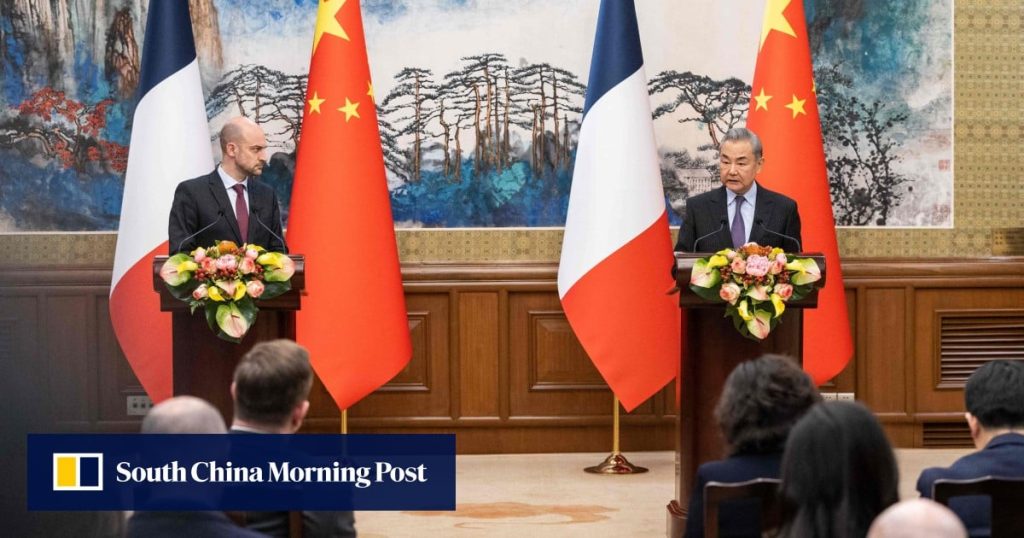When French Foreign Minister Jean-Noel Barrot went to Beijing last month, he gave his Chinese counterparts an ultimatum: do something about hefty tariffs on cognac imports and the liquor’s abrupt removal from your duty-free stores, or our entire “strategic agenda” will be paused.
And with French President Emmanuel Macron planning to travel to China in the second half of this year for another summit with his Chinese counterpart Xi Jinping, the stakes were high.
In Paris, Beijing is seen to have blinked. Last week, China paused the imposition of permanent duties on brandy until July, even though provisional tariffs of up to 39 per cent will continue to be collected. Beijing also pledged to return cognac to the shelves of airport duty-free shops, a huge market for French producers.
It was a minor victory, but one that European policymakers are studying closely. With China and the US engaging in a brutal tit-for-tat trade war, Europe is starting to sense that it has a stronger hand in dealing with China, according to several official sources.
“I think we have more leverage than we’ve ever had, because China is the only one targeted. We’re not targeted any more,” said Agatha Kratz, a partner at the Rhodium Group research house, referring to US President Donald Trump’s “reciprocal tariffs”. The European Union was given a reduced US tariff rate on Wednesday.
“China has [a] 125 per cent [tariff] from the US. It’s completely mind-blowing,” she added.


